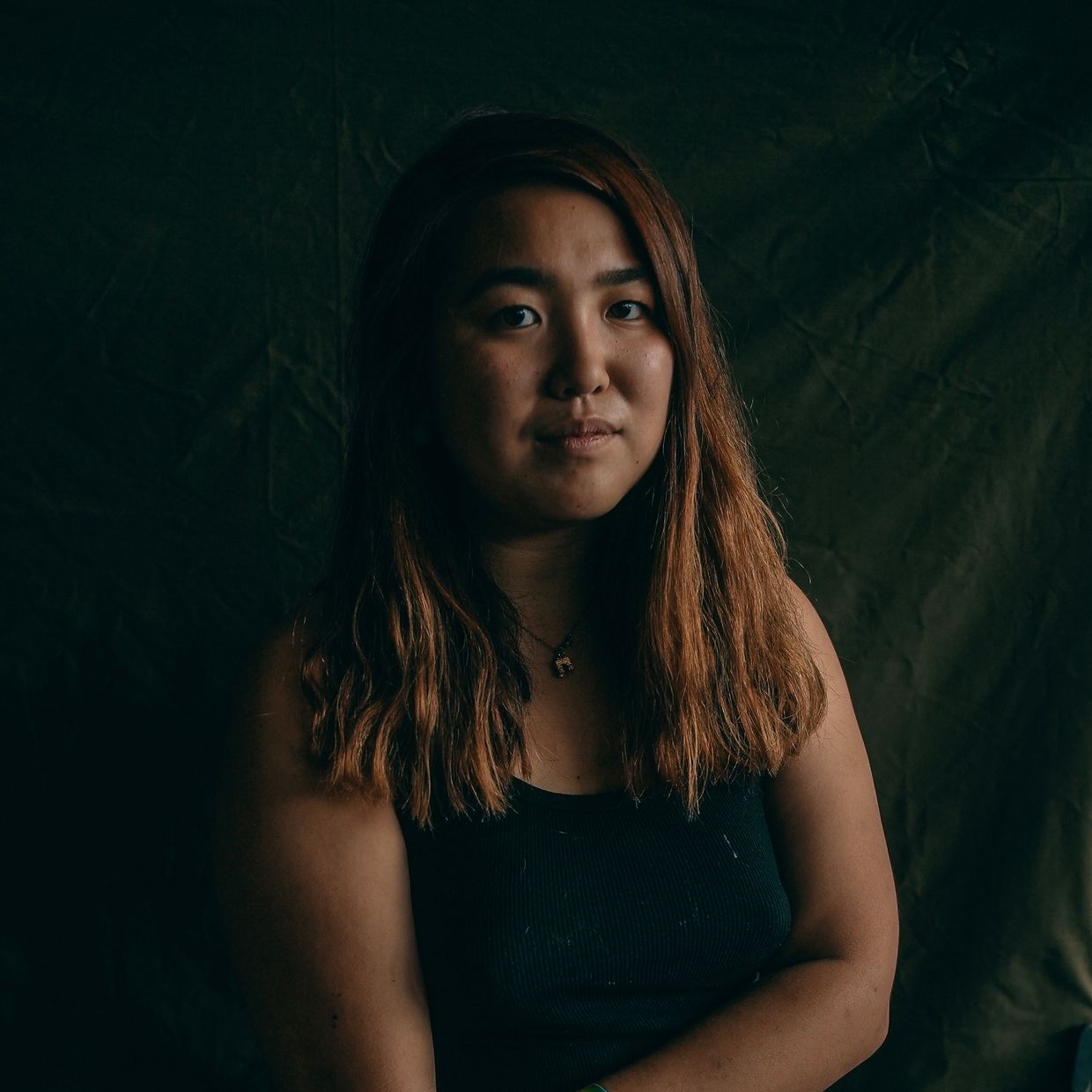Editor's Note: The Kyiv Independent is not disclosing the full names of soldiers due to security concerns amid the ongoing war in Ukraine.
DONETSK OBLAST – Watching my friend Vitalii prepare grilled pork skewers during my latest trip to Donetsk Oblast in February, we were thinking about one thing: the summer days that we will never be able to repeat.
Everything was different back then.
The days were longer, filled with laughter and joy despite our relative proximity to the front line. We’d sit outside around a dining table almost every night, talking about anything but war – from our previous jobs to where you can find the best cheap eats in random cities. We would even go fishing early in the morning, driving up to a nearby river in a creaky Soviet-era “bukhanka” van.
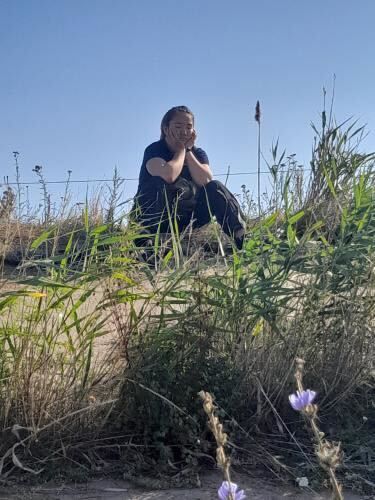
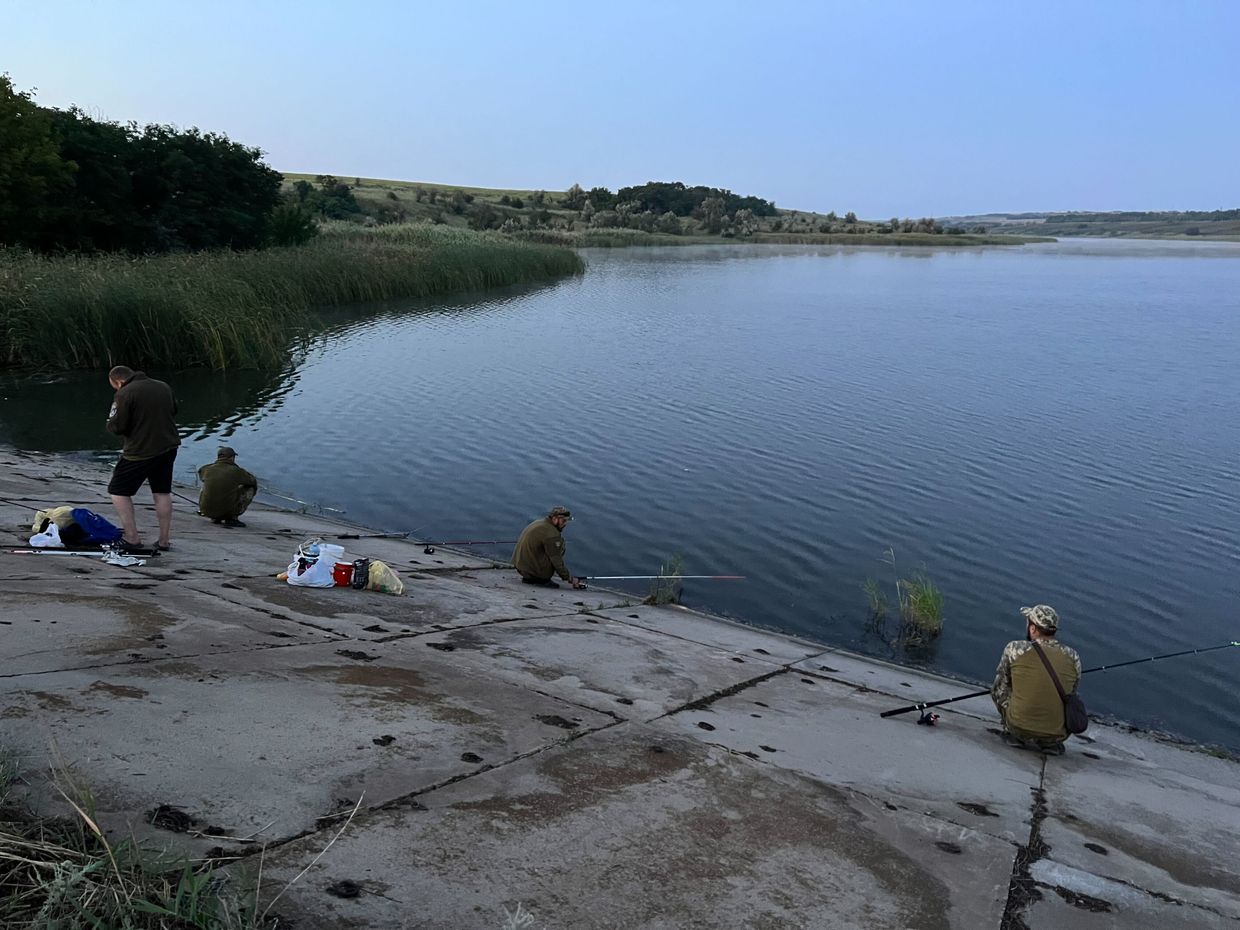
Ukraine’s well-known 93rd Separate Mechanized Brigade, of which Vitalii is a part, had long been fighting in eastern Donetsk Oblast, and was a mix of experienced fighters and newcomers who had yet to engage in combat.
During one of the “shashlyk” (barbeque) days that summer of 2023, the commander of the brigade’s mortar battery, Oleksandr, welcomed the new recruits. The 51-year-old major from southern Odesa Oblast thanked his team for their bravery in continuing to defend Ukraine.
In just a few weeks, Oleksandr’s unit would be sent back to one of the war’s hottest spots – just south of Russian-occupied Bakhmut. My good friend Vladyslav (Vlad), a 28-year Kryvyi Rih native fighting in the same unit, knew that those on the front line needed more manpower, and he was eager to go back as soon as possible. He tried to distract himself by exploring the world of fishing, getting excited over new equipment.
Little did we know that three of the unit’s members, commander Oleksandr and my friends Vlad and Artem, would be killed in a brutal Russian anti-tank missile attack in the early morning of Nov. 19, 2023.
Vlad would never experience another summer day scrolling through Instagram reels with a cigarette in hand, sporting a gray T-shirt and stretched-out black shorts.
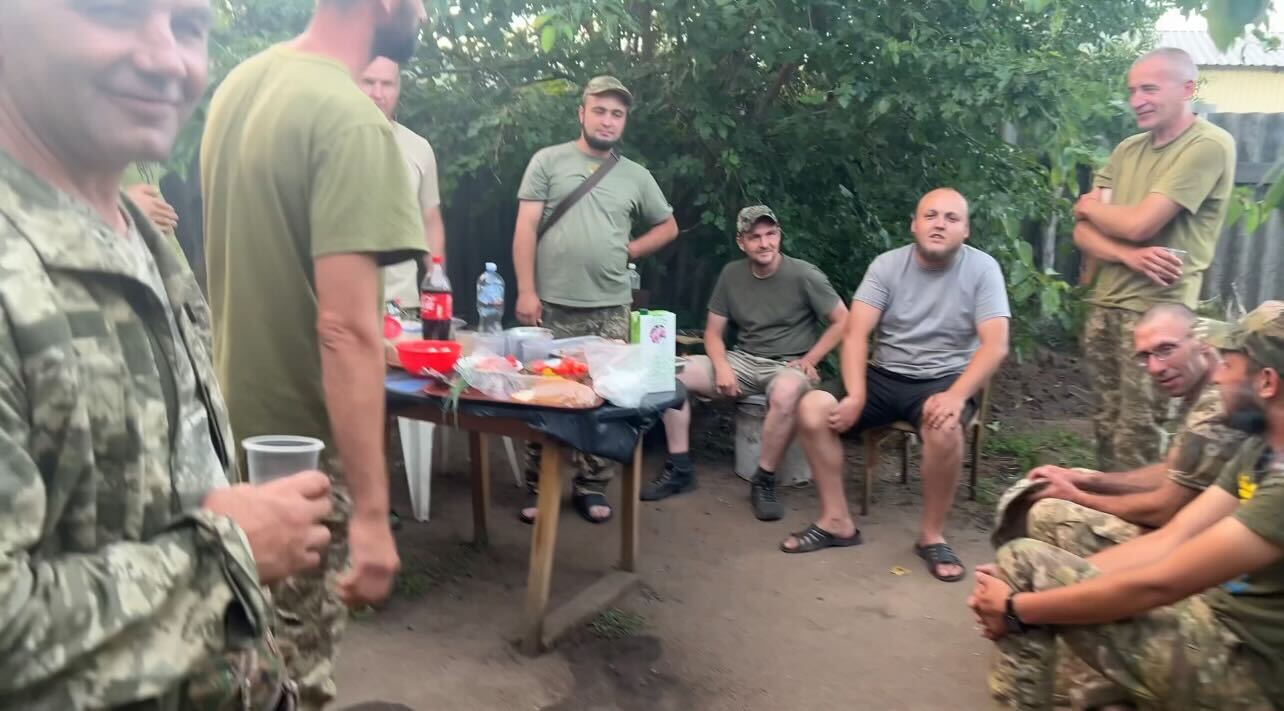
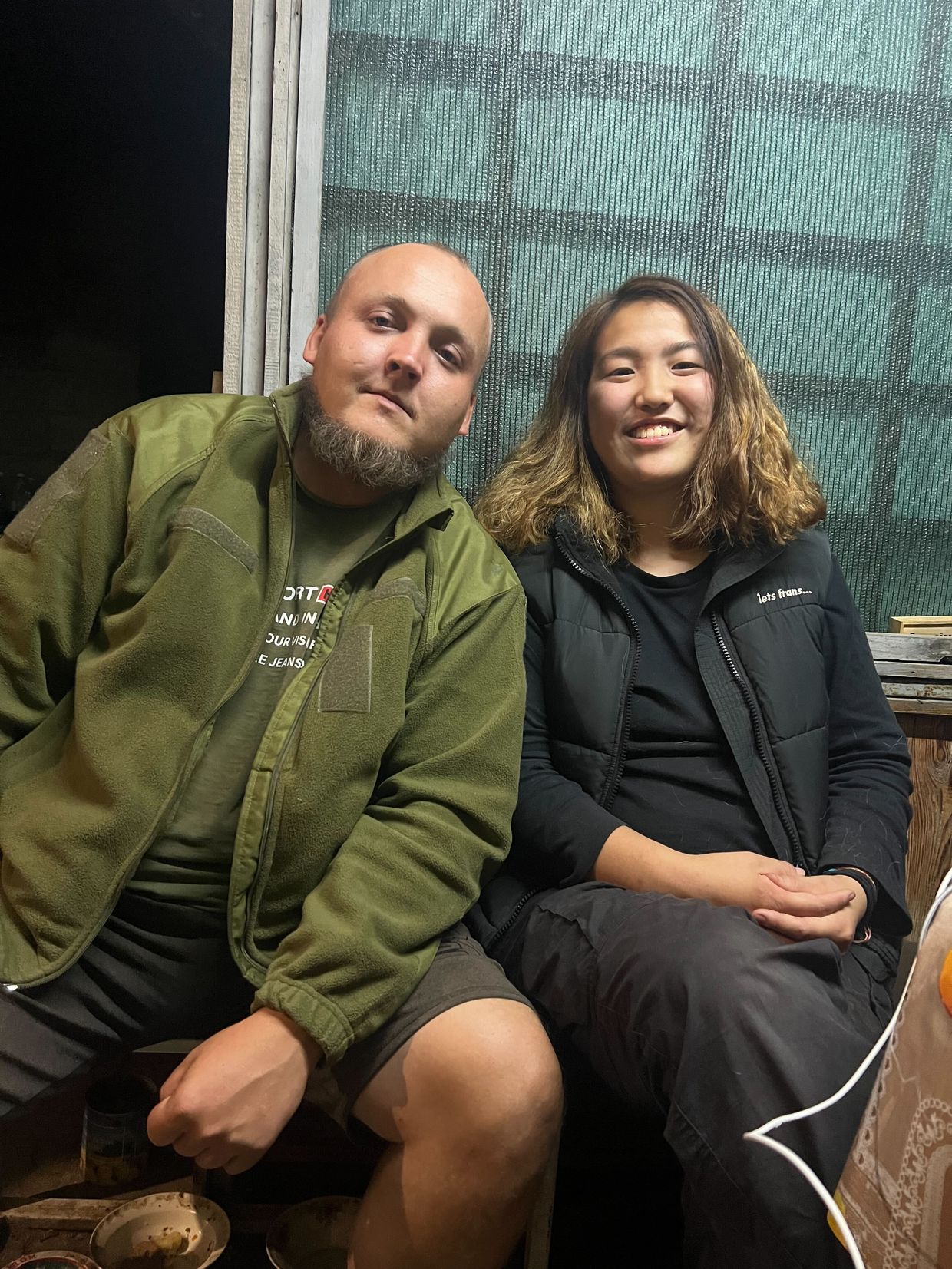
Oleksandr, who cared so much about his soldiers, would be killed on the spot. This great man with the brightest blue eyes and the biggest heart; the kind of empathetic commander that every soldier wanted to lead them.
As we ate the grilled skewers this February, Vitalii said that, even though he pulled Oleksandr’s body, he couldn’t process the reality of his commander’s death. Vlad, who had stood the closest to the van that was struck by Russian forces, was unrecognizable. Another friend, who used to sleep beside Vlad at the base, collected his charcoal body parts, almost losing consciousness himself.
“It was not Vlad,” the friend told me.
Vlad, I did visit your hometown of Kryvyi Rih for the first time, but you weren’t there to show me around like you promised. Instead, your childhood friends took me to a church where your coffin lay, and we witnessed your girlfriend, sister, and mother mourn your death at the funeral.
When it was my turn to say a final goodbye, I kneeled beside Vlad’s coffin and thanked him for his service. I vowed to him that I would keep working to shed light on the brutality of the war.
The natural-born leader that he was, Vlad often said he felt at home with his wonderful “family” in Donetsk Oblast. But this shouldn’t have been your life, Vlad. You deserved to live in your beloved Kryvyi Rih, to become a father and a role model for your future kids that I know you really wanted to have.
Fast forward three months since the funeral, and the loss of these three brave men still feels surreal to me.
Saying goodbyes
It was too cold to be outside for longer than a few minutes for a smoke, so we took the meat inside, eating it with our hands and some white bread. It almost felt like those summer days, but it hurt to acknowledge once again that things would never be the same.
I slept that night on a military folding cot, like the others at the base. As much as I enjoyed the comfort of staying at the nearby apartment that the unit had rented out, it was too emotionally heavy for me. My friend, Artem, a 35-year-old former coal miner, used to live there. He was the third of the mortar unit members to have been killed that day in November. I stayed there for a day this February, and I struggled to breathe as I thought about how he must have spent the last nights of his life in this apartment.
I will always remember my last conversation with Artem in late September. It was just outside his apartment. We talked for hours, sitting on the stairs under the starry sky.
The stars shine so brightly in Donbas — probably one of the reasons I came to love this industrial heartland that has suffered so much from the war. We talked about death, among other things. Artem, you told me it was difficult to see life go on in cities like Kyiv when you don't have the luxury of living the way you wanted.
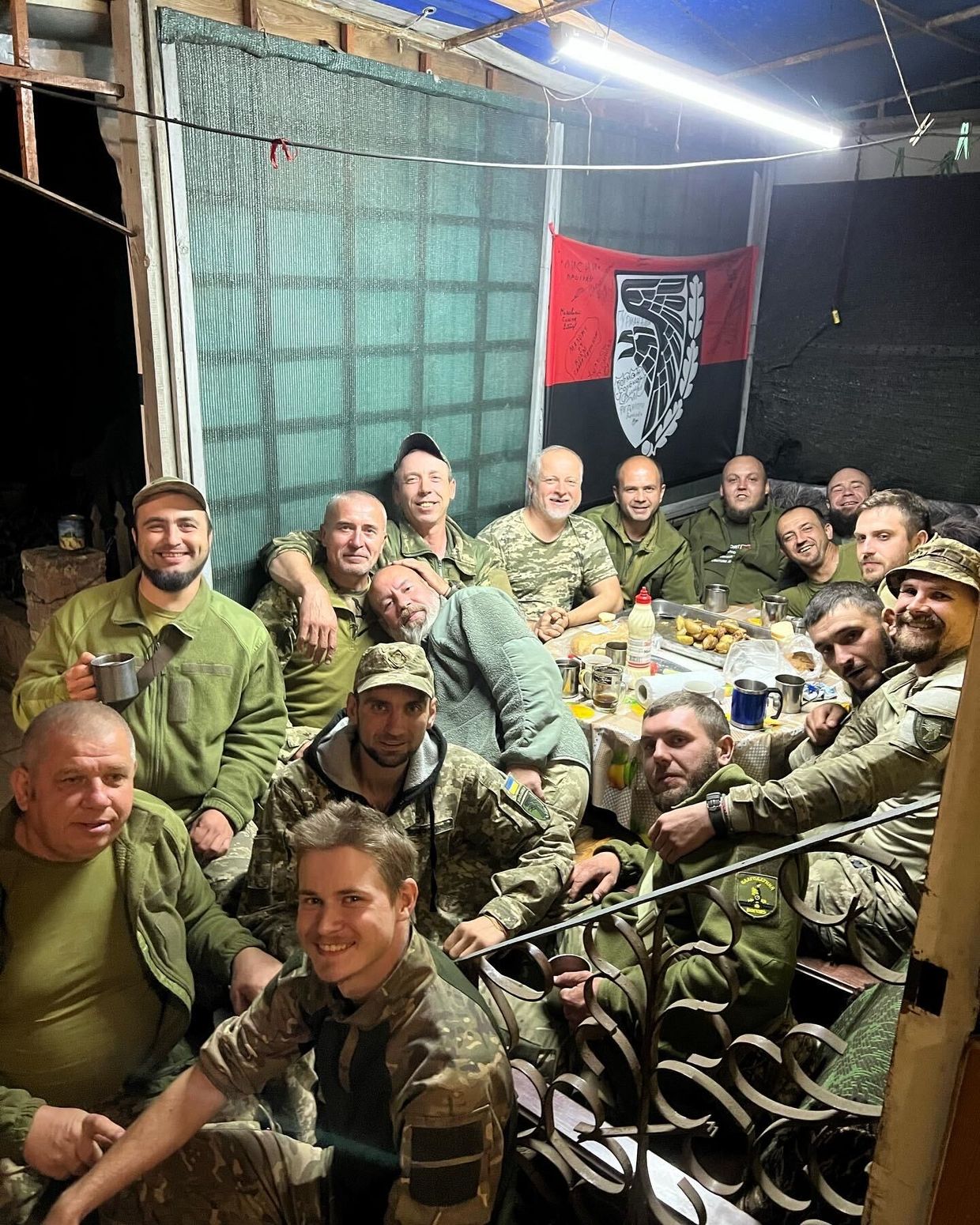
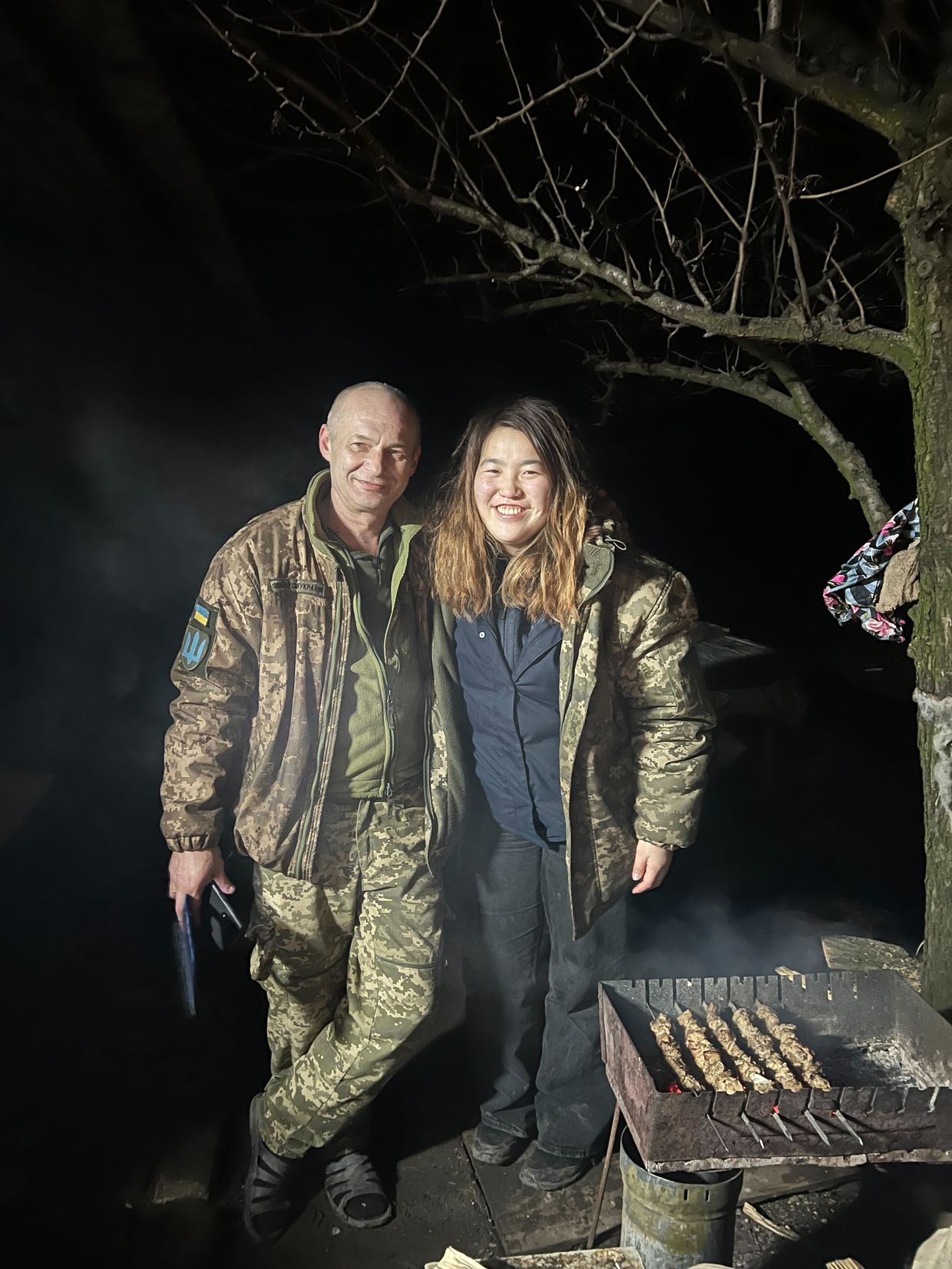
“The war already ended there for civilians," Artem told me during our last meeting. "They (civilians in cities like Kyiv) understand that (war) is somewhere, but they know that it won’t reach them,” he thought.
He was deeply hurt that his life was just passing by while life continued in cities less affected by the war. But instead of fearing death or losing hope, Artem told me that a soldier needs to follow their instincts and think in order to minimize the risk of danger.
“The more effectively you work, the lower the chance that you suffer,” Artem said in my last interview with him. “So, you think about how to do all this effectively, and sometimes you even forget that there is death here, and it awaits you at every corner.”
“You know, there is also such a thought,” Artem added. “If a person is killed, he won't even notice it. It's worse to remain crippled – it will be worse firstly for the person who became crippled, and secondly, for the relatives, it would be hard to take care of you.”
“Anyway, a person dies at some point – some earlier than others. So, there aren't really thoughts about death (in my head).”
We hugged and said our goodbyes. We were supposed to see each other when he got back from a combat mission a few days later, but our timing didn’t align, and the next news I heard was of his death.
Mounting costs
I hate goodbyes because you can’t do anything but hope to meet again. Sometimes you just feel so small.
My last trip to Donbas was particularly tough for me. A thought that I had pushed away for a long time returned to me: Your friends could be killed defending a position that could be captured by Russian troops the very next week. You begin to wonder what the final outcome of the war could realistically be, and you immediately try to shut down your thoughts. You always want the death of your close ones to mean something, but it seems that it’s not always the case in war.
More than two years into Russia’s full-scale invasion of Ukraine, so many families have suffered heartbreaking losses. During a press conference to mark the full-scale invasion’s second year, President Volodymyr Zelensky announced that 31,000 Ukrainian soldiers had been killed. Unfortunately, the real toll is said to be higher, with many marked as “missing in action” as their bodies couldn’t be retrieved from the battlefield. Most of the soldiers I have spoken to tell me that only a fraction of those fighting since February 2022 have made it to this point.
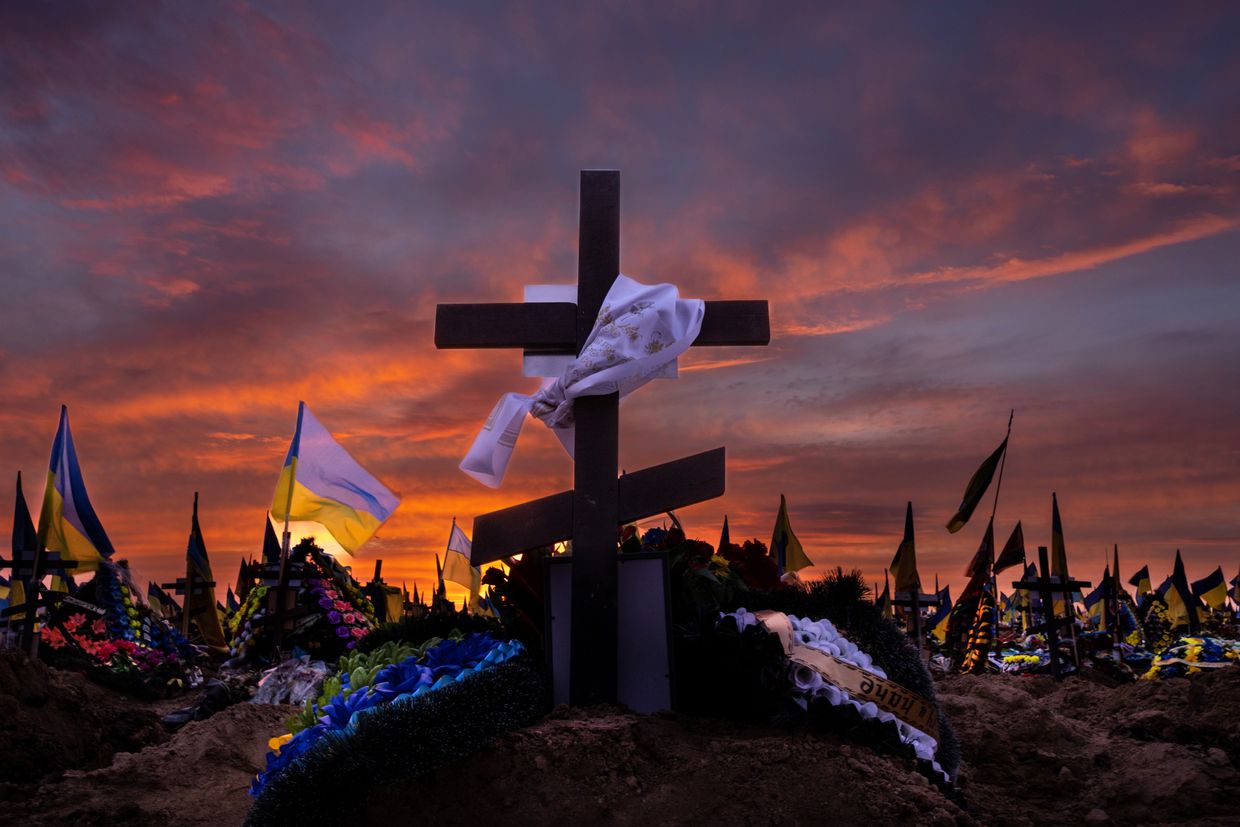
I try to remind myself that it’s extremely lucky that Vlad, Oleksandr, and Artem’s bodies were retrieved. The destroyed van still stands there, reminding my friends of the horror each time they pass it on their way to the position. It hurts me greatly to see the families of missing soldiers still believing that their loved ones are alive and held in Russian captivity because there’s no evidence (a body) to prove they were killed in action.
On death
As I write this uncomfortably personal piece in Warsaw, where my family lives, I start thinking about how the smallest things keep reminding me of my friends on the front.
We just went to a Spanish restaurant where we ordered a delicious paella – and suddenly, out of nowhere, I recalled the big pot of plov (pilaf) that Oleksandr made for us on a September day. He wasn’t proud of it; he said he had to mix two different kinds of rice and wasn’t satisfied with the result. Vlad said he would add some other spice, and they began passionately discussing food as usual.
For me, it was just perfect.
Little did I know before the full-scale war that you could feel so alone in an overpacked restaurant blasting live music. Little did I know that the pain would be so deep that it becomes irreversible. Who knew that we’d live in a world where death is so common around us, losing friends one after another.
As a child, I always used to fear death and was so scared about the concept that I cried to my mom because there was no way to prevent it. I was terrified of what would happen after death. Now, at the age of 23, I understand that death is just another reminder that every moment is precious because it could be your last. The way we survive war is to be as comfortable as possible with that uncertainty.
Editor’s Note: The opinions expressed in the op-ed section are those of the authors and do not purport to reflect the views of the Kyiv Independent.
